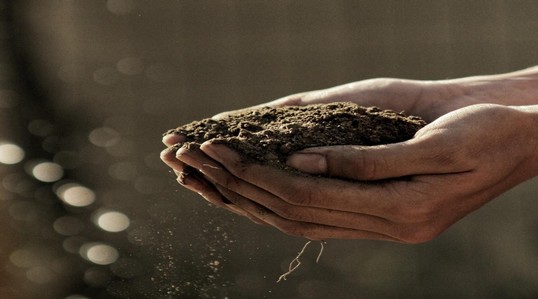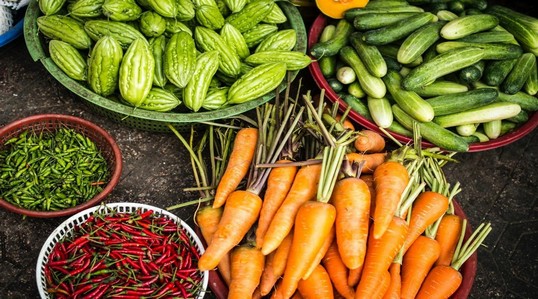What Is Sustainable Food Production ?
It takes a tremendous amount of labor from billions of people and immense financial and natural resources to produce enough food to feed the world's 7.88 billion inhabitants. High-income countries have various food options, but the processes used to get these foods from the farm to the table are frequently not environmentally friendly.
Moreover, global food and agriculture production lines are confronted with previously unheard-of obstacles due to increased food demand to feed a growing population, increased hunger and malnutrition, severe climate change effects, overuse of natural resources, extinction of species, and food loss and waste.
These factors could make it more difficult for the world to satisfy its food consumption patterns in the present and the future. In other words, more people need more access to a good supply of nutritious food.
As a result, it is imperative for farmers, agriculturalists, and food processing and production companies to adopt sustainable, resource-efficient practices that minimize waste and help to preserve the environment while addressing the central problem of food insecurity that has reached epidemic levels in some places.
In this article, we help you understand sustainable food production, how it works, and its benefits for people and our planet.
What Does Sustainable Food Production Entail ?
What is sustainable production? It changes the structure of conventional agriculture to give farmers back control over their farms' income and ways of producing food. Sustainable farming practices can prevent or halt environmental degradation, which fuels sickness, hunger, eviction, and armed conflict. The welfare of both rural and urban inhabitants is ensured by preserving the long-term health and output of farmland and conserving natural resources, such as clean water and air.
To provide workable solutions out of poverty, sustainable food production also requires the creation of sustainable food value chains.
Reducing food waste is a crucial but frequently disregarded aspect of sustainable food systems. Up to 33 percent of all cultivated food is lost or wasted worldwide. Food waste reduction presents a significant potential to enhance food security and reduce the environmental impact of agricultural systems across the supply chain.
"Sustainable food production" refers to a shared obligation to create, distribute, and consume healthy food within a thriving market that safeguards and improves our quality of life today and in the future.
Establishing sustainable food value chains can provide millions of underprivileged households in numerous countries with significant development pathways.
Food value chains are rich and complex processes, so it can be challenging to identify why they aren't sustainable. To end the cycle of poverty, we need to work together to solve several issues. Naturally, this calls for a high level of coordination and active collaboration amongst numerous value chain participants, including farmers, food producers, governments, and civil society organizations.
How Does Sustainable Food Production Work ?

Now that you know all about sustainable food production, you must understand how it works. Sustainable food production is a way of producing food that does not pollute, conserves non-renewable natural resources and energy, is economically practical, is safe for employees, communities, and customers, and does not jeopardize the needs of future generations.
Primary production (agriculture) is only the first step in sustainable food production. Food processing and manufacturing are also a part of it.
Prioritizing social and environmentally friendly practices, sustainable food production holds each aspect of the food supply chain responsible for its effects on local economies, populations, and environments. A sustainable food supply does not harm the environment, damage biodiversity, increase poverty, or use natural resources.
The process of sustainably producing food is circular; it necessitates respect between farmers and consumers and the empowerment of each community involved in the process. Discovering farming, processing, and distribution techniques that are sustainable for the long term is the aim of the collaborative effort, which aims to end food insecurity.
What Are the Benefits of Sustainable Food Production ?
Every country must adopt sustainable food production practices. Still, it is especially crucial for high-income countries because they now represent the bulk of industrial agriculture, including commercial food production and consumption. Here are some of the ways sustainable food production, including food processing and manufacturing, can be beneficial.
Minimizes Food Waste

Almost a third of the food produced for human utilization is wasted annually, as reported by the Food and Agriculture Organization (FAO). Each year, 1.3 billion tons of food are wasted in this manner. It represents a significant loss of resources utilized to manufacture the food and the food itself.
Nearly half of this wasted food comes from processing and manufacturing, even though about a third of it is lost during cultivation and post-harvest management and a fifth to end users.
Inefficiency is one of the primary reasons why food is wasted during production and processing. Food producers and processors may drastically minimize food waste by streamlining their procedures and management frameworks. It begins with monitoring food losses properly and determining their causes. It also entails ensuring that people involved in food production are appropriately trained.
Helps to Prevent Pollution
Today, 26 percent of the annual anthropogenic emissions driving global climate change come from agriculture. Future food production is becoming more and more at risk due to climate change, necessitating sustainable solutions.
The continuous impacts of global warming on agricultural output are projected to aggravate the societal volatility that causes hunger and migration in regions of the world with fragile agrarian populations.
Although the bulk of the world's CO2 emissions is produced by higher-income countries' commercial operations, everyday lives, and diets, the repercussions of climate change will be felt everywhere.
By using sustainable agricultural methods, you may maintain the biodiversity that supports human existence while also reducing air, water, and soil pollution. Reduced extreme weather, which frequently results in food poverty, is achieved by tackling climate change via sustainable food production.
Reduces the Use of Plastic Packaging to Minimize Waste and Increase Efficiency
Only 14 percent of the annual production of plastic packaging, which totals over 78 million metric tons, is recycled.
Most plastic is produced from non-renewable materials, such as petroleum or natural gas, and is ultimately disposed of in landfills.
The good news is that many producers choose alternatives made of paper and wood. These alternatives to plastic share the advantages of being recyclable, regenerative, and biodegradable. The packing must, however, be made using paper and wood from sustainable sources.
Other producers are creating creative packaging alternatives using biodegradable materials like crops, seaweed, and fish skin. Some of these fresh substitutes might eventually take the place of single-use plastics.
One of the most eco-friendly options for metal-packaged foods is aluminum, which comes from sustainable sources. It is one of the metals that may be recycled the most readily, and recycling it requires only 5 percent of the energy needed to refine new aluminum.
Final Word
A widespread shift toward sustainable food production is more crucial than ever, given the rising rates of global poverty and hunger and the looming threat of climate change. To safeguard long-term farm productivity and enhance the wellness of people and animals, conventional agricultural methods must be replaced with ways that work with nature rather than against it. Therefore, understanding what sustainable food production is and how it can benefit the world is vital.
We at RECAPP play our part in ensuring sustainable food production by facilitating the creation of products from recycled goods like plastic. It not only helps lower the quantity of plastic waste dumped in landfills but also improves resource management and lessens the environmental impact of food production, processing, and manufacturing. You can join our revolution and contribute to a better world.
